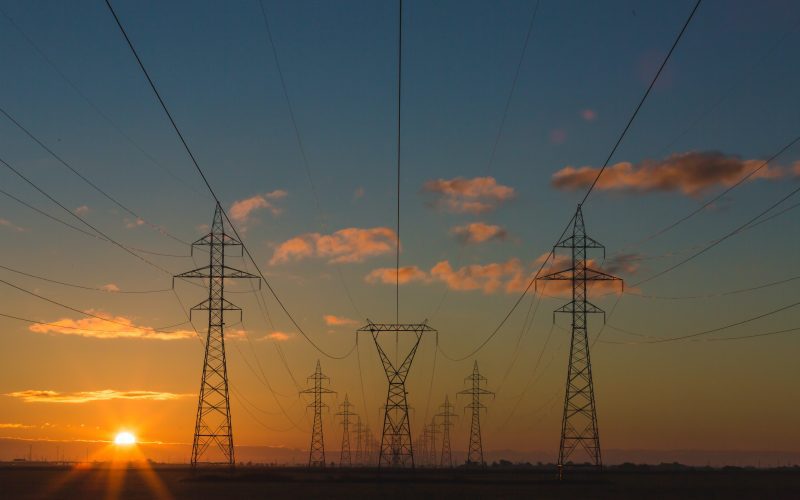Attention EU citizens, are you ready to take control of your energy future? Our world is rapidly changing and the need for sustainable development has never been more urgent. It’s time to ask ourselves: what role do energy subsidies play in creating a sustainable future for Europe? In this blog post, we’ll explore why reducing energy subsidies is critical in achieving a greener and cleaner European continent. So, buckle up and let’s dive into the world of energy policies!
What are energy subsidies?
In simple terms, energy subsidies are financial support mechanisms that keep the price of energy artificially low. This type of subsidy is common in oil-producing countries, where the government owns the resources and can choose to sell them at a lower price than the global market price. However, these subsidies often result in higher domestic consumption and emissions, as well as distorted markets and wasted public funds.
The EU has been a leader in phase-out of fossil fuel subsidies, but there is still more work to be done. In order to meet its climate goals and ensure a sustainable future for its citizens, the EU must continue to reduce its energy subsidies. The first step is to end all new direct and indirect subsidies for fossil fuels, including those for exploration, production, consumption, and infrastructure. The second step is to put in place policies and measures that will gradually phase out existing fossil fuel subsidies.
A recent report by OECD found that direct fossil fuel subsidies in EU countries totaled €5.2 billion in 2017, while indirect subsidies (such as those related to environmental externalities) amounted to an additional €55 billion. The majority of these subsidie
The impact of energy subsidies in the EU
Energy subsidies are a form of government intervention in markets for energy products. They can take many different forms, but all have the same effect: they artificially lower the price of energy products below the level that would otherwise prevail in the market.
Subsidies distorts markets and creates artificial incentives that lead to inefficient allocation of resources. In general, subsidies should be avoided because they make it difficult for new entrants to compete and they foster rent-seeking behavior.
In the context of climate change, energy subsidies are particularly problematic because they encourage the use of fossil fuels, which are a major source of greenhouse gas emissions. In order to meet its climate targets, the EU needs to phase out its energy subsidies and redirect public funding towards renewable energy sources.
According to recent estimates, EU countries subsidise fossil fuels to the tune of €55 billion per year. This includes direct subsidies (e.g. for coal production) as well as indirect subsidies (e.g. through tax breaks). Phasing out these subsidies would send a strong signal to investors that the EU is serious about transitioning to a low-carbon economy.
It would also level the playing field between renewables and fossil fuels, making it easier for renewables to compete on price. This is essential if we are to achieve our goal of decarbonizing the EU’s power sector by 2030.
Reducing energy subsidies is not easy, politically speaking. But it is essential if we want to create a
Why reform is necessary
Around the world, energy subsidies are costing taxpayers trillions of dollars every year. In the European Union (EU), these subsidies totaled an estimated €109 billion in 2016, or about 1.2% of GDP.
Reforming energy subsidies is essential to ensuring a sustainable future for the EU. By phasing out fossil fuel subsidies and redirecting those funds to support renewable energy, the EU can increase its climate ambition, improve energy security, and create jobs and growth.
Fossil fuel subsidies propping up polluting industries
Most of the energy subsidies in the EU go to fossil fuels, which are a major source of greenhouse gas emissions. In 2016, an estimated €73 billion – or two-thirds – of all energy subsidies in the EU went to support coal, oil, and gas consumption.
This not only contributes to air pollution and climate change but also props up polluting industries that would otherwise be less competitive. Redirecting fossil fuel subsidies to cleaner energy sources would level the playing field and provide a much-needed boost to the transition to a low-carbon economy.
Climate change is a clear and present danger
The Intergovernmental Panel on Climate Change’s (IPCC) Special Report on Global Warming of 1.5°C made it clear that we need to take urgent action to avoid catastrophic temperature rises. To have any chance of meeting the Paris Agreement goals of keeping global warming well below 2°C and pursuing efforts to
How to phase out energy subsidies
If a country wants to phase out its energy subsidies, it first needs to assess how much it is spending on subsidies as a whole. This can be done by looking at the country’s budget and identifying all of the subsidies that are being given to the energy sector. Once this information has been gathered, the country can then start to work on reducing the amount of money that it is giving out in subsidies.
There are a few different ways that this can be done. One way is by gradually reducing the subsidy over time. Another way is by scaling back the subsidy so that it only applies to certain types of energy production, such as renewable energy. The country can also choose to completely eliminate the subsidy altogether.
Whichever method is chosen, it is important to communicate with the public about why the change is being made and what impact it is expected to have. This will help to ensure that there is buy-in from all stakeholders involved and make it more likely that the policy change will be successful.
Conclusion
It is clear that reducing energy subsidies in EU countries is a necessary step on the path towards achieving a sustainable future. By phasing out these costly subsidies and investing in more efficient technologies, EU countries can reduce their carbon emissions while ensuring reliable access to energy resources. This will help them meet their commitments under the Paris Agreement and support their transition to a low-carbon society. Additionally, reduced energy costs will free up funds for other important priorities such as health care or education. Ultimately, this will benefit all citizens of the European Union by creating greater economic opportunities and improving quality of life for everyone.












